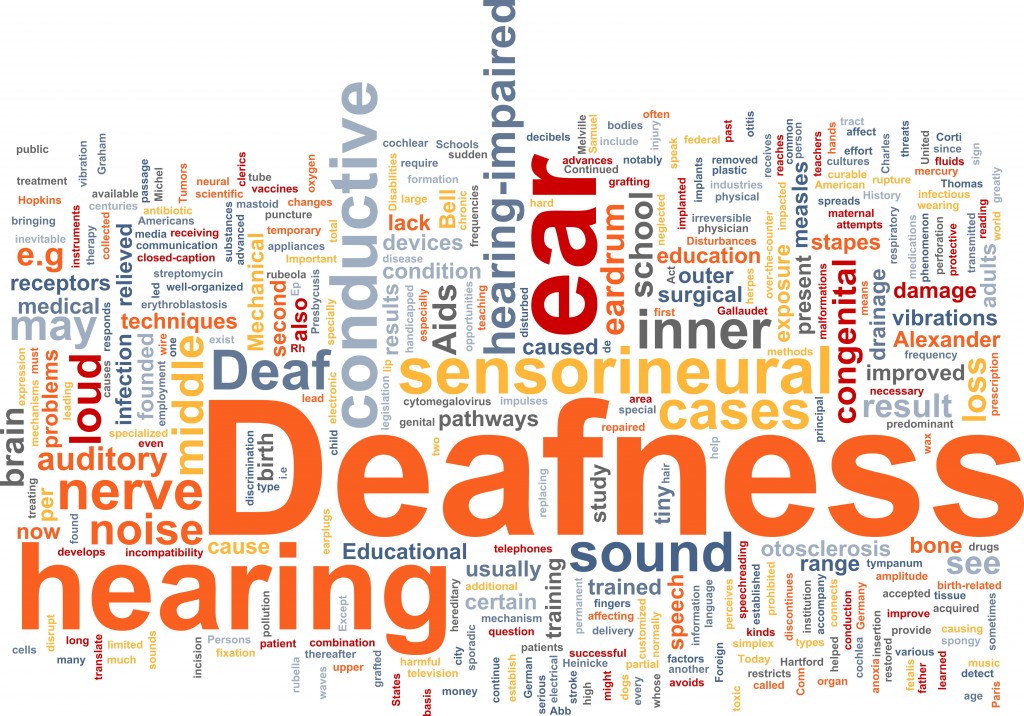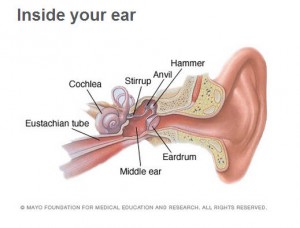-
Health & Wellness
Hearing Loss Affects All Ages
 May is designated Better Hearing & Speech Month, raising public awareness and increase understanding about hearing loss issues. According to the National Institutes of Health, an estimated one-third of Americans between the ages of 65 and 75, and close to half of those older than 75, have some degree of hearing loss. At age 65, one out of every three people in this country has some form of hearing loss. Mayo Clinic Health System audiologist Jenne Tunnell, Au.D., says, “Although hearing loss is common in older adults, the problem affects people of all ages. Some are born with hearing loss, and others can lose hearing at a young age.”
May is designated Better Hearing & Speech Month, raising public awareness and increase understanding about hearing loss issues. According to the National Institutes of Health, an estimated one-third of Americans between the ages of 65 and 75, and close to half of those older than 75, have some degree of hearing loss. At age 65, one out of every three people in this country has some form of hearing loss. Mayo Clinic Health System audiologist Jenne Tunnell, Au.D., says, “Although hearing loss is common in older adults, the problem affects people of all ages. Some are born with hearing loss, and others can lose hearing at a young age.”
Doctors believe that heredity and chronic loud noise exposure are the two main factors that contribute to hearing loss over time. Other factors, such as an ear infection, can prevent your ears from conducting sounds as well as they should. Unfortunately, you can’t reverse most forms of hearing loss.
To help avoid the negative side effects associated with untreated hearing loss, look for early signs. Start by giving yourself the following quiz from the National Institute on Deafness and Other Communication Disorders.
- Do you have a problem hearing over the telephone?
- Do you have trouble following conversation if people are talking at the same time?
- Do people complain that you turn the TV volume up too high?
- Do you have to strain to understand conversation?
- Do you have trouble hearing in a noisy background?
- Do you find yourself asking people to repeat themselves?
- Do many people you talk to seem to mumble or not speak clearly?
- Do you misunderstand what others are saying and respond inappropriately?
- Do you have trouble understanding the speech of women and children?
- Do people get annoyed because you misunderstand what they say?
Keep in mind that this quiz is for general information. Only your audiologist should diagnose a hearing loss. If you answered yes to three or more of the questions, call your doctor and ask about getting a hearing test.
Hearing loss results in a loss of intelligibility. Words are often missing or distorted – leading those with a hearing issue to believe that “everyone is mumbling.” However, you don’t have to live in a world of quieter or less distinct sounds. You and your audiologist can take steps to improve what you can hear. People with hearing loss may deal with issues such as grief over the hearing loss, low self-esteem, stress and the resulting fatigue, depression, loss of intimacy, withdrawal, social isolation and possible chemical dependency.
Many conditions can cause hearing loss. Some of the more common causes include:
- Exposure to Hazardous Noise. Many activities such as hunting and shooting, loud music, power tools, heavy equipment, lawn mowers, snowmobiles and chainsaws can produce sounds capable of damaging your inner ear if appropriate hearing protective devices are not used. If you are in a noisy situation in which you have to raise your voice or shout to someone within three feet of you, the noise may be at hazardous levels. Signs of overexposure can be a ringing in the ears after exposure and muffled-sounding speech.
- Aging. People over age 50 are likely to gradually lose some hearing each year.
- Heredity. Family history plays a role in how resilient your hearing is, and several types of hearing loss seem to run in families.
- Medications. Certain medications can cause hearing loss. If you experience any signs of hearing loss, talk to the health care provider who prescribed your medication.
- Trauma/Infection. An injury or infection in the ear can cause temporary or permanent hearing loss. Examples of this are a ruptured eardrum or swimmer’s ear.
Hearing aids are devices that amplify sound for people with hearing loss. They come in many makes, models, shapes and sizes. The main types of hearing aids are:
- Completely-in-the-canal
- In-the-canal
- In-the-ear
- Behind-the-ear
- Receiver-in-the-ear (RITE)
When hearing loss is too severe to benefit from traditional hearing aids, another option may be cochlear implant surgery. A cochlear implant is a small device that bypasses parts of the inner ear that don’t work and converts sounds into electrical impulses that send sound information to the brain. Your health care provider can advise whether you may be a candidate for cochlear implantation and discuss the benefits and risks of this procedure.







